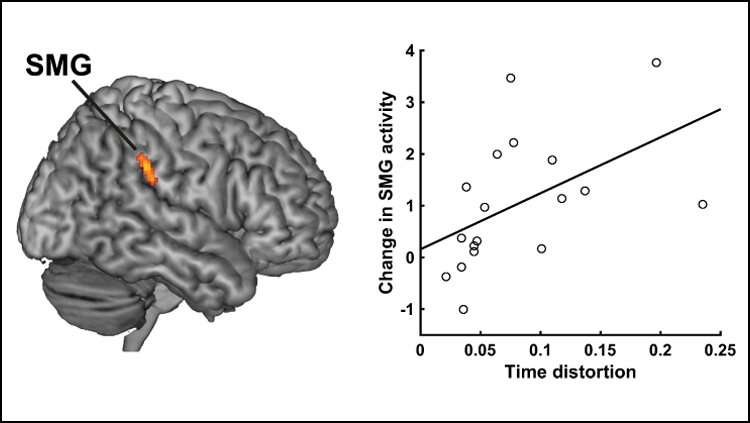
On some days, time flies by, while on others it seems to drag on. A new study from JNeurosci reveals why: time-sensitive neurons get worn out and skew our perceptions of time.
Neurons in the supramarginal gyrus (SMG) fire in response to a specific length of time. If repeatedly exposed to a stimulus of a fixed duration, the neurons fatigue. Since other neurons continue firing normally, our subjective perception of time becomes skewed.
Hayashi and Ivry measured brain activity with fMRI as human participants engaged in a time comparison task. Healthy adult participants viewed a visual adaptor (a grey circle) for a set length of time, 30 times in a row.
After this adaptation period, they were shown a test stimulus and indicated its duration. If the adaptor duration was long, the participants underestimated time; if the adaptor duration was short, they overestimated time.
Activity in the SMG decreased when the adaptor and test stimulus were similar in length, indicating neuron fatigue.
Source: Read Full Article
